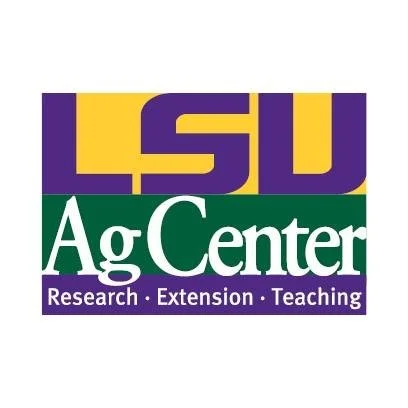Louisiana’s sugarcane farmers are once again assessing the impact of extreme winter weather on their fields. The most recent freeze, which brought frigid temperatures but no snowfall, raised concerns about potential damage to the 2025 crop. Unlike the historic snowstorm in early January, which provided an insulating layer of protection, this latest cold snap arrived with only rain, leaving crops without nature’s protective blanket.
Read MoreData from soybean trials conducted between the 2013 – 2020 seasons in the Northeast, Central, and Southwest regions of Louisiana were used to publish an article in Agronomy Journal called “Soybean planting dates and maturity groups: Maximizing yield potential and decreasing risk in Louisiana" (Moseley et al., 2024). The data in this article suggest there are planting windows in each region that 99 - 100% of the max yield potential can be achieved.
Read MoreSoil organic matter improves soil chemical properties, which includes the increase of nutrient status, cation exchange capacity (CEC), and anion exchange capacity. Soil organic matter is also known for the slow release of nutrients to the plants, protects nutrients in available forms to the plants, and reduces nutrient leaching.
Read MoreLouisiana 4-H and FFA livestock competitors from Shreveport to Sorrento and all points between came together to participate in the 90th annual LSU AgCenter Livestock Show from Feb. 11 to 18 at the Lamar-Dixon Expo Center in Gonzales.
Read MoreWith H5N1, also known as avian influenza or bird flu, on the rise a recent LSU AgCenter hire is bringing a set of skills to his research seldom seen in the field of poultry science — a mechanical engineering degree.
Read MoreMost action starts with a spark, a catalyst to do something. Louisiana 4-H was igniting that spark for seventh and eighth graders during the first Spark Action Change Summit held Feb. 20 to 22 in Baton Rouge.
Read MoreThe LSU AgCenter is once again gearing up for AgMagic, its signature educational event that takes visitors on an interactive journey through Louisiana agriculture. AgMagic events will be held in Baton Rouge and the Greater New Orleans area in March.
Read MoreOn the fifth day of the LSU AgCenter Livestock Show,LSU AgCenter and 4-H leadership came together to commend a significant donation to the Louisiana 4-H Foundation.
Jeannette Thomason donated $250,000 for renovations of bathhouses at the Grant Walker 4-H Educational Center in Pollock, which hosts 4-H camp programs.
Read MoreThe LSU AgCenter is hosting an upcoming summer internship for juniors, seniors and grad students.
This is a paid summer internship with 20 positions available throughout Louisiana.
Read More4-H offers Louisiana youth a wealth of personal growth opportunities that assist in developing well-rounded adult members of society a few years down the road. Yet sometimes navigating the actual roads to camps and workshops can be difficult for those who lack reliable transportation. That’s where 4-H supporters have stepped up.
Several parishes have acquired vans thanks to local support, said Lanette Hebert, 4-H coordinator for the LSU AgCenter Southwest Region.
Read MoreFor entomologist Aaron Ashbrook, the insect-rich environment of Louisiana is a fascinating place to work.
“We have more insects in this climate,” he said. “Subtropical areas, like we are in, that warmer temperature and humidity allows for insects to be alive longer, allows them to reproduce more and have more generations per year.”
Read MoreGrowing up in Acadia Parish, Kathryn LeBlanc had a dream of one day being a veterinarian. Her family was involved in rescuing dogs, and the idea of making a career that would allow her to help animals in need intrigued her.
Read MoreThe optional Supplemental Coverage Option (SCO) endorsement provides additional coverage for a portion of an individual producer’s underlying crop insurance policy deductible. The basic operational mechanics of the SCO endorsement follows/ ‘mirrors’ underlying policy coverage. If the producer purchases a yield protection (revenue protection) policy, then SCO covers yield loss (revenue loss). The amount of coverage depends on the liability, coverage level, and approved yield for the underlying policy.
Read MoreThe Enhanced Coverage Option (ECO) allows producers to supplement their current underlying individual insurance coverage and provides area-based coverage for a portion of the deductible of the producer’s underlying policy in a manner like the Supplemental Coverage Option (SCO). ECO utilizes the same expected and final area yields, projected and harvest prices, and payment factors as SCO but covers a band from 86% (where SCO coverage ends) up to 90% or 95% of expected crop value. Like SCO, ECO is based on a producer’s underlying insurance coverage.
Read MoreThere’s nothing quite like pecans. With their rich, buttery flavor, these nuts are a staple of Louisiana culture and cuisine.
If you’d like to produce your own pecans, November through March is an ideal time to plant these trees. There are a few considerations to take into account first.
Read More













